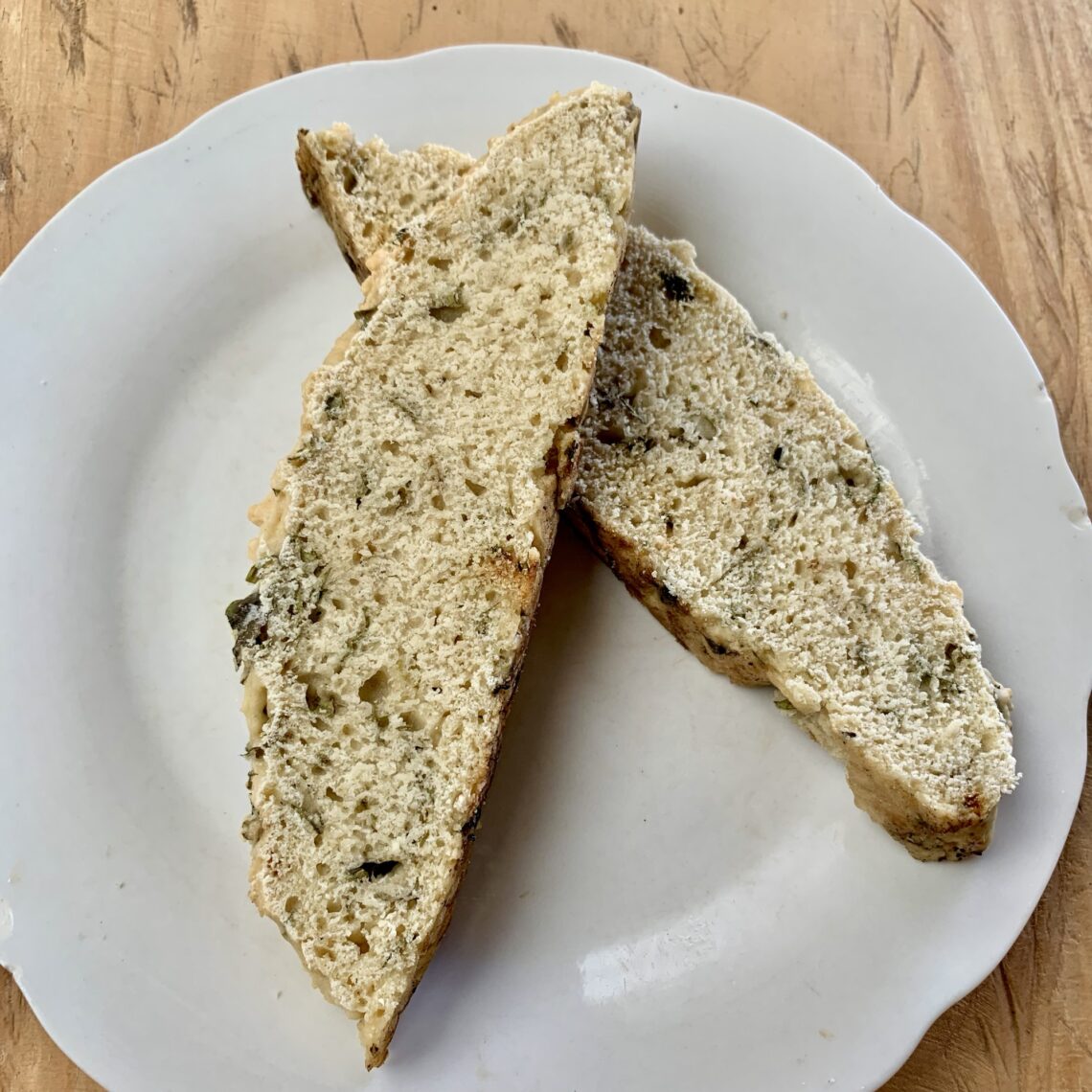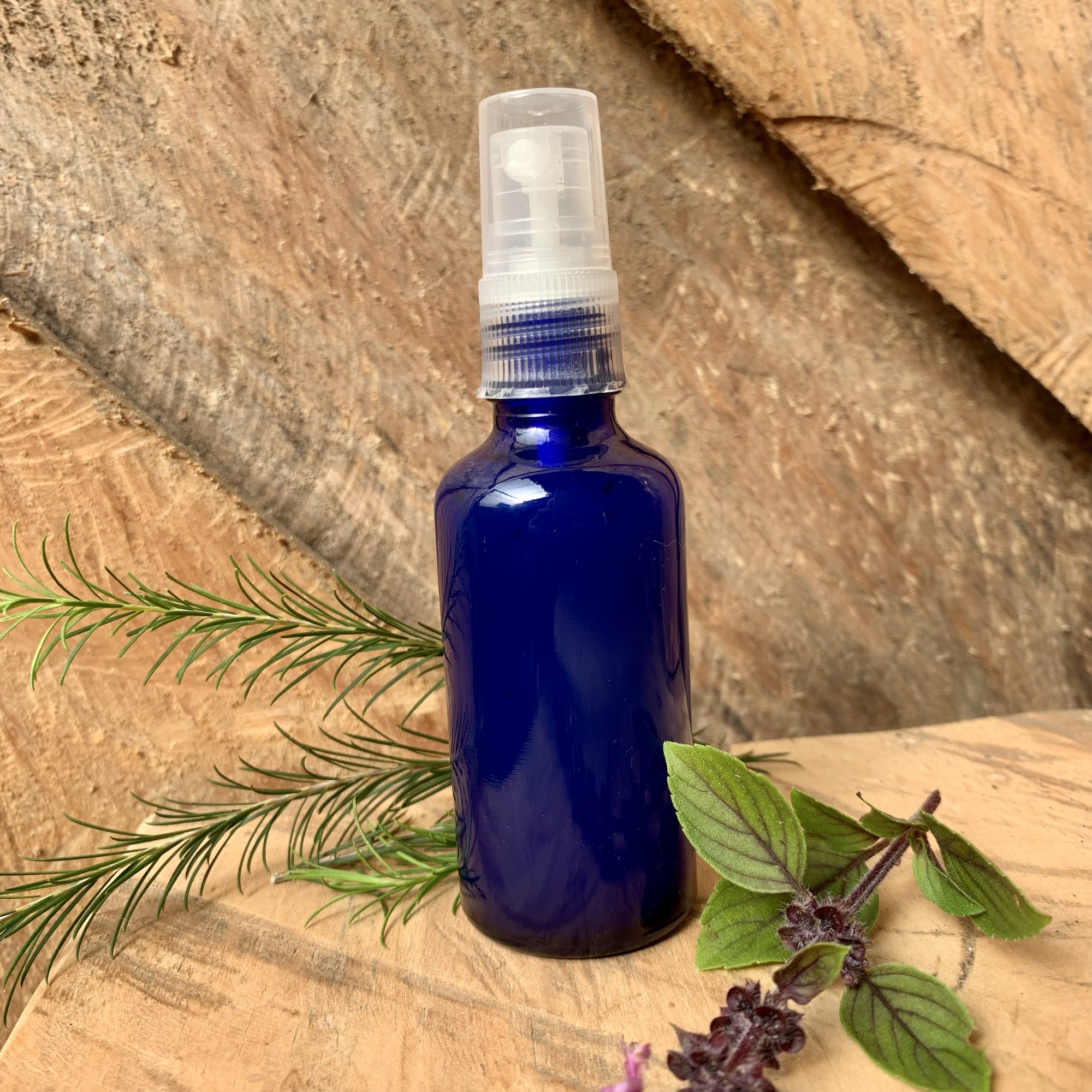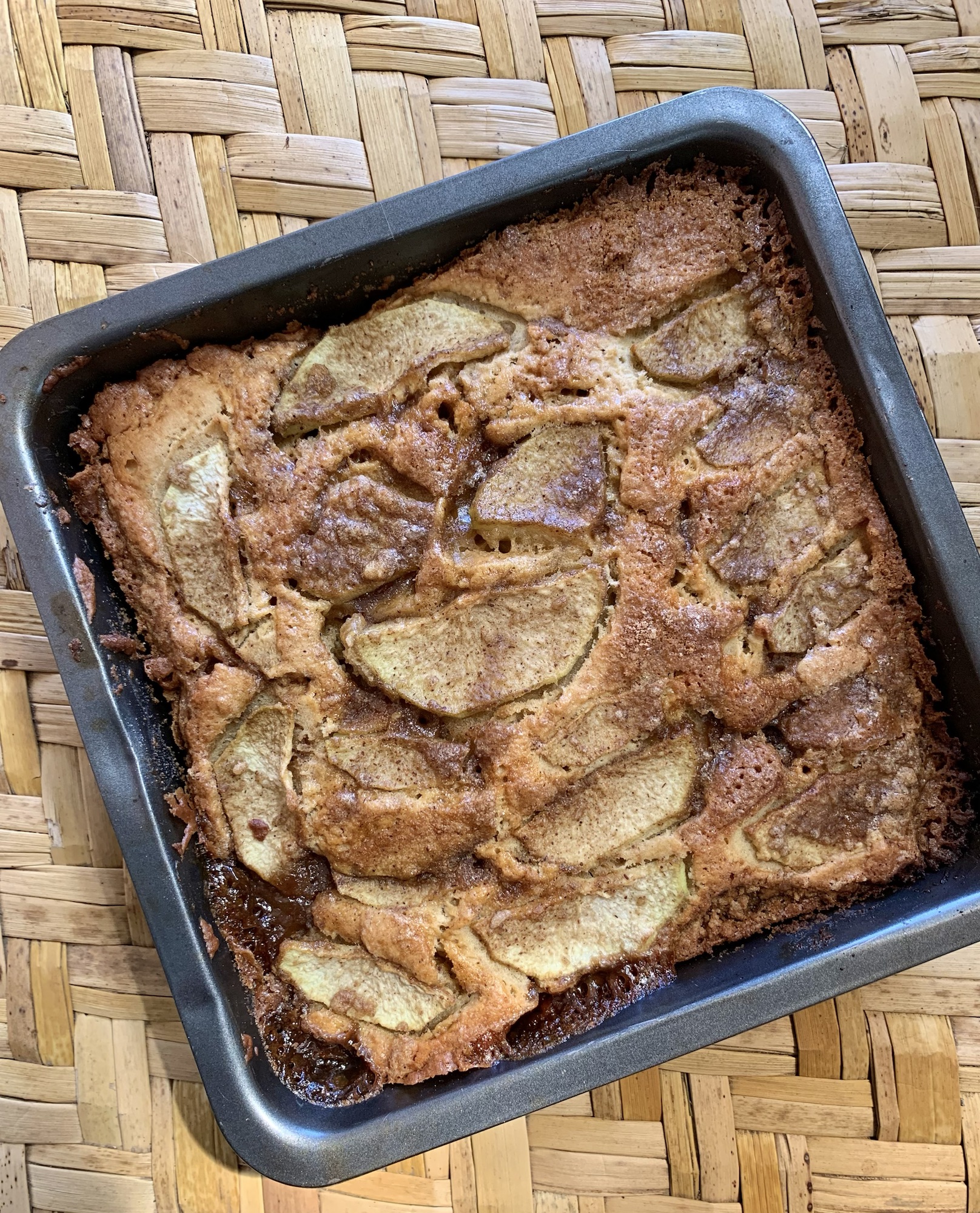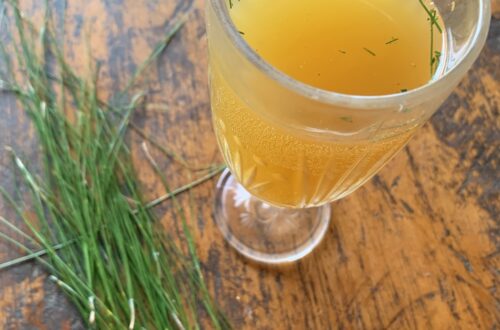Last Updated on October 26, 2025
Aromatic and flavorful basil (Ocimum basilicum) is a tasty addition to a number of dishes, like pesto, pasta, salad, and more. It is a source of vitamins and minerals, most notably vitamin K, and lends several other health benefits.
Basil is rich in flavonoids, particularly quercetin and rutin. These constituents have anti-inflammatory properties. They also have a cytoprotective effect, which means that they help to protect cells from damage, which could lead to certain types of cancers.
Research shows that basil may boost memory and help to reduce cognitive decline caused by factors like stress and aging. Animal studies have found that it could be promising for helping to to ease depression caused by chronic stress.
Adding basil to your food is a simple way to benefit from it’s health boosting properties. Whip up some basil soda bread this summer for a tasty, herb infused loaf that comes together quickly and effortlessly.
Enjoy it fresh out of the oven slathered with butter, or pair it with scrambled eggs and homemade sauerkraut — my family’s favorite way to enjoy it.
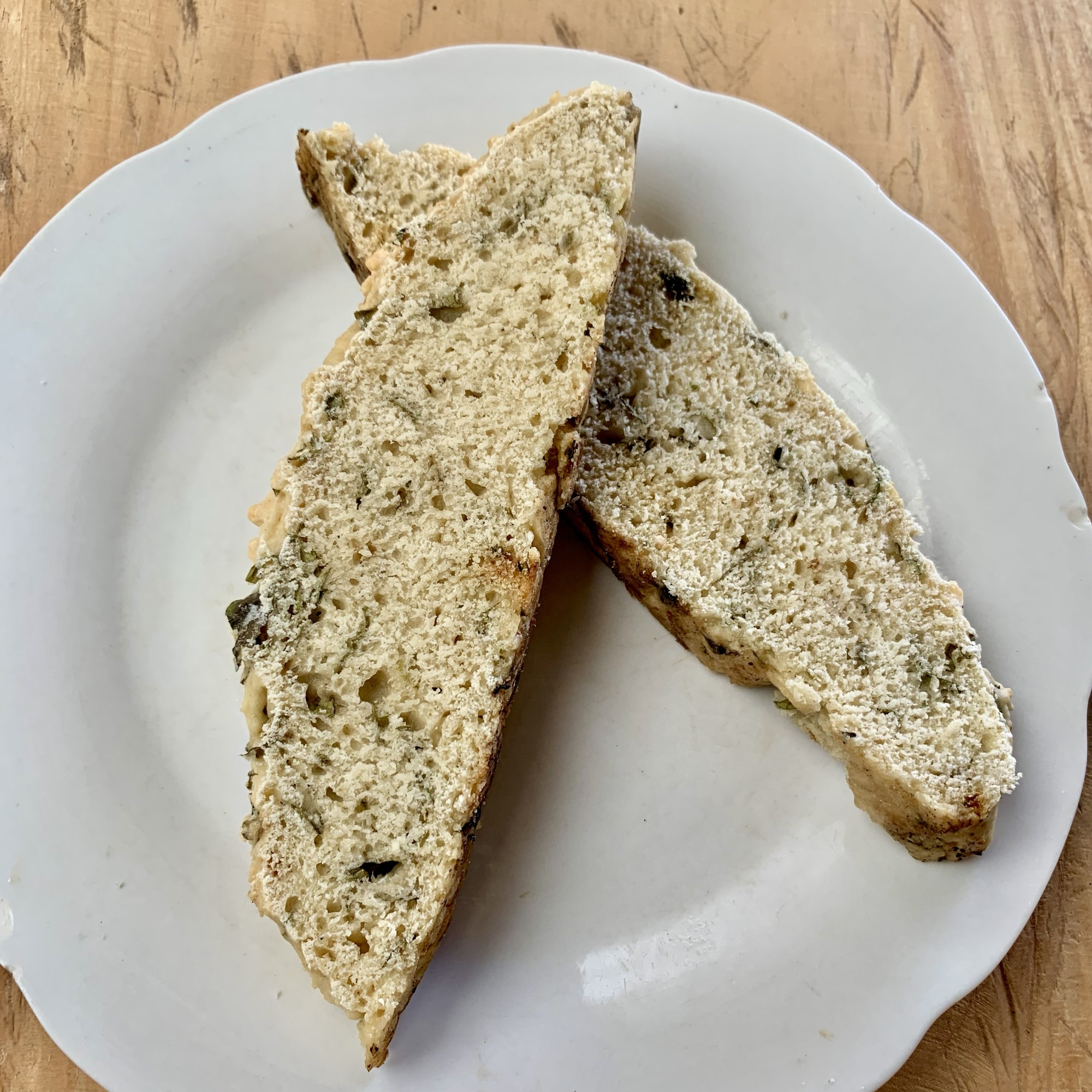
Ingredients
Method
- Add the flour, baking soda, salt, sugar, and basil to a bowl and mix to combine.
- In a separate bowl, mix together the milk and vinegar. Let it sit for a moment, then pour it into the bowl with the dry ingredients. Stir together til well combined.
- Grease a small-medium cast iron pan. Pour the dough into the middle of the pan and use a spatula to form it into a loaf shape.
- Bake at 375°F for about 25-30 minutes. The loaf is done when it starts turning golden brown and makes a distinctive thunk noise when you tap it.
References
Ayuob, N. N., Firgany, A. E. L., El-Mansy, A. A., & Ali, S. (2017). Can Ocimum basilicum relieve chronic unpredictable mild stress-induced depression in mice?. Experimental and molecular pathology, 103(2), 153–161. https://doi.org/10.1016/j.yexmp.2017.08.007
Ayuob, N. N., El Wahab, M. G. A., Ali, S. S., & Abdel-Tawab, H. S. (2018). Ocimum basilicum improve chronic stress-induced neurodegenerative changes in mice hippocampus. Metabolic brain disease, 33(3), 795–804. https://doi.org/10.1007/s11011-017-0173-3
Nadeem, H. R., Akhtar, S., Sestili, P., Ismail, T., Neugart, S., Qamar, M., & Esatbeyoglu, T. (2022). Toxicity, Antioxidant Activity, and Phytochemicals of Basil (Ocimum basilicum L.) Leaves Cultivated in Southern Punjab, Pakistan. Foods, 11(9), 1239. https://doi.org/10.3390/foods11091239
Sarahroodi, S., Esmaeili, S., Mikaili, P., Hemmati, Z., & Saberi, Y. (2012). The effects of green Ocimum basilicum hydroalcoholic extract on retention and retrieval of memory in mice. Ancient science of life, 31(4), 185–189. https://doi.org/10.4103/0257-7941.107354
